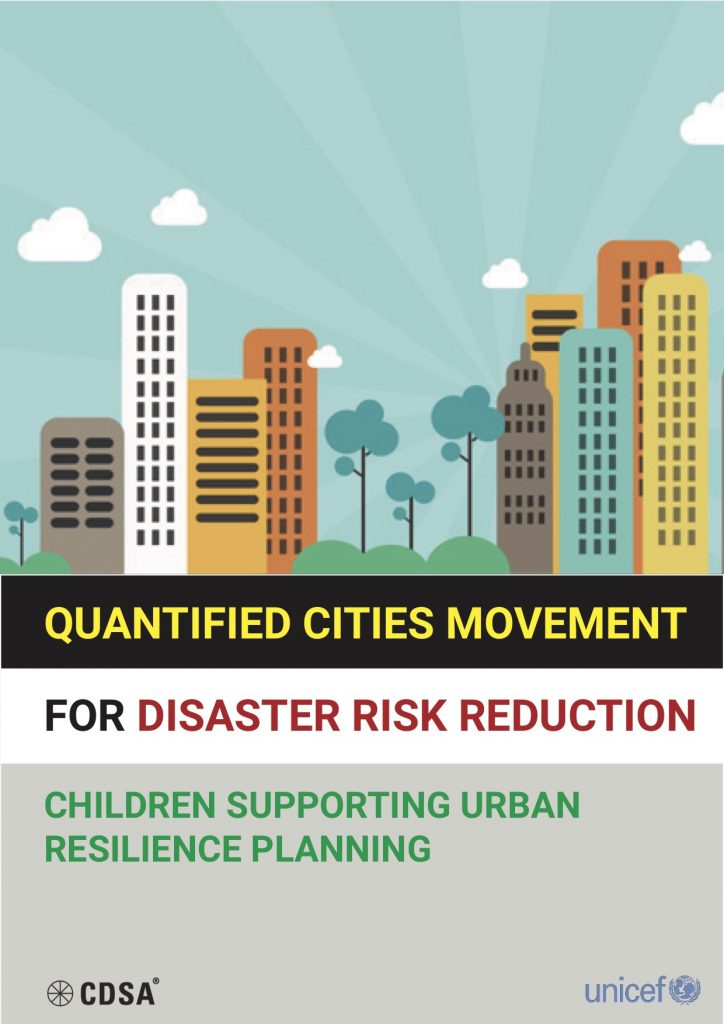
The Quantified Cities Movement for Disaster Risk Reduction (QCM-DRR) Training
The QCM-DRR training manual has been created with the aim of enabling children in becoming skilled, knowledgeable and sensitized citizens. Through the QCM-DRR manual, children (and adults) will be provided with snippets of important information. This information will introduce them to some crucial concepts pertaining to:
- Identifying oneself as a responsible citizen.
- Identifying one’s responsibilities as a citizen.
- Identifying one’s abilities as a citizen.
- Identifying the activities that one should partake in (and which not to) as a citizen.
- Understanding the idea of self awareness and cognition.
- Understanding how to use basic tools to be aware and observant.
- How to identify hazards and stresses.
- The meaning of hazards, risks, capacities and vulnerabilities.
- How to solve the hazards and stresses one has identified.
- The meaning of hygiene and the actions one needs take to maintain hygiene.
- Disaster risk reduction and resilience.
- Keeping my school safe.
- Being safe on the street.
- Articulation of problems and solutions.
The various tools used to evolve knowledge and sensitivity will include role playing, field work, situational awareness and problem solving, team building activities, games and missions as well as traditional methods such as reading, writing essays and reports and the use of quizzes.
We will be using pre and post tests to create a baseline and measure the marginal change in skills, knowledge and sensitivities in order to tweak and improve our pedagogical approach and techniques.
The manual will be of five parts. The first part will be concerned with introducing the idea of a citizen and situational awareness in which we will discuss the concepts of road safety and walkability. The second part will introduce the children to the concept of ambient environment. The third part will explain the concepts of disaster risk reduction and urban resilience. The fourth part will consist of hygiene and cleanliness and how to prevent contagious diseases. Finally the children will be taught about built environment as this will coincide with fieldwork and data collection.
To enhance the learning experience we are proposing the use of sports and fire safety drills as well as introduction to the concept of gardening and nutrition.
Though the above mentioned subjects and concepts can be considered vast and time consuming to teach, we are confident that they can be taught in 12 sessions with each session lasting not more than 90 minutes. In most of the sessions the first 15 minutes will be dedicated in revising the previous session’ concepts. The next 30 minutes will deal with introducing the children to new concepts and the remaining 45 minutes will be spent in learning by doing which will include, games within the class, role playing, fieldwork within the school premises and fieldwork outside the school premises. Finally students will be provided with missions for the weekend where they will have to collect information, identify problems, solve puzzles and suggest solutions.
Training Manuals
Please follow the links given below to view the current version of the manual.
